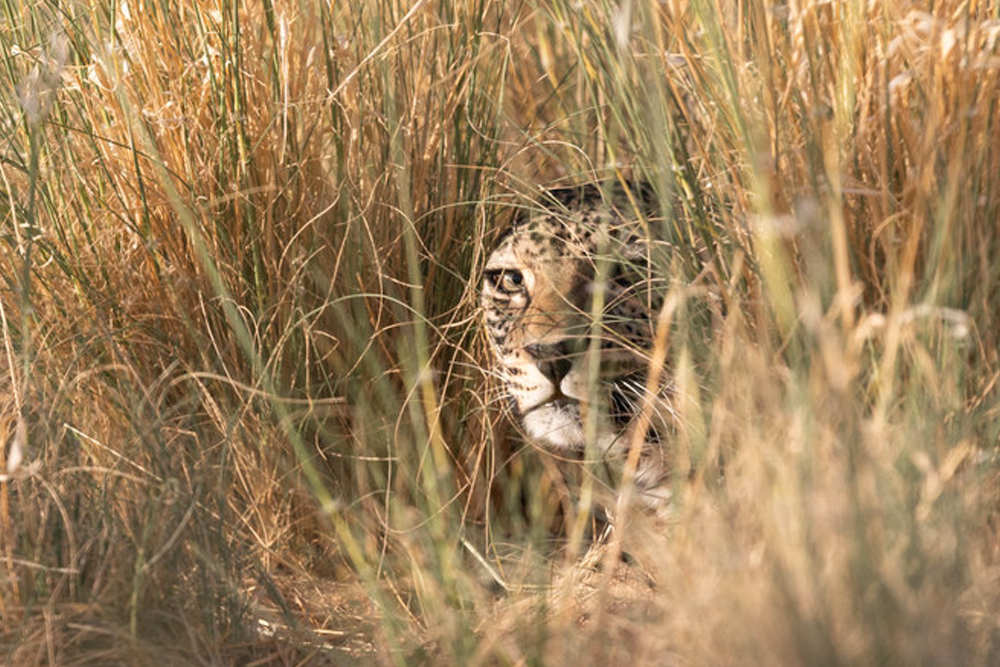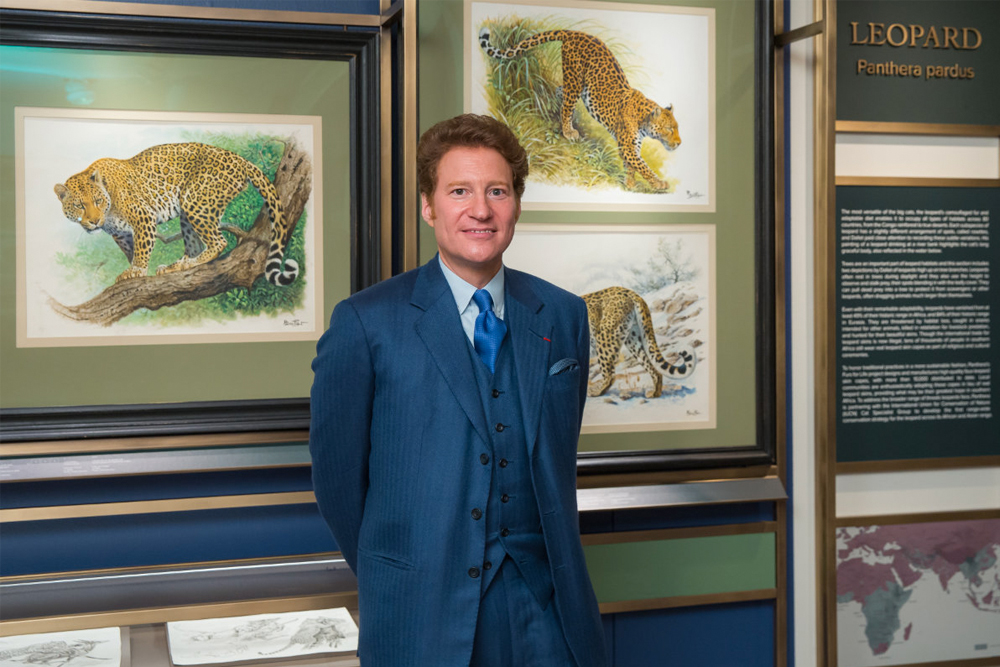
Thomas S. Kaplan expressed his absolute delight when the UN General Assembly recently designated February 10 as International Day of the Arabian Leopard. The significance of the Arabian Leopard to the Saudi people and their ancestors can be seen in the ancient petroglyphs on AlUla's walls. As co-founder of Panthera and founder of the Global Alliance for Wild Cats, Kaplan signed an agreement with Prince Badr bin Abdullah to support conservation initiatives, particularly the Arabian Leopard Initiative in AlUla.

Prince Badr bin Abdullah bin Farhan, Saudi minister of culture and governor of the Royal Commission for Al-Ula, signing the cooperation agreement with Panthera Chairman Thomas Kaplan in AlUla in June 2019. (Supplied/File)
It is considered a gift that Saudi Arabia is a leader in conservation efforts for the Arabian Leopard, the most endangered large cat. The UN resolution is a significant victory for both the leopard and the Kingdom of Saudi Arabia. Kaplan sees it as support for AlUla's ambitious conservation and environmental efforts, which include plans to rebuild the area as a cultural hub and carry out a significant environmental restoration programme.

Wild cats are considered "umbrella species" as their protection indirectly benefits other species and ecosystems. Strong wild cat populations benefit local communities and visitors, creating financial benefits. Kaplan highlights that initiatives to save leopards have resulted in increased medical attention, schools, and clinics for local communities. The Arabian Leopard Initiative not only boosts pride in the country but also offers chances to people who live in the leopard's natural environment.

The UN recognition of the animal’s importance will help boost the efforts of conservationists to save the leopard, says Panthera Chairman Thomas Kaplan. (Courtesy of Matthew Carasella Photography)
The success of the initiative is a reflection of AlUla's revolutionary approach to protecting natural and cultural assets. Kaplan acknowledges the passion and commitment of Crown Prince Mohammed bin Salman, Prince Badr, and Princess Reema bint Salman in driving these reforms. The Arabian leopard represents a symbol of national unity and soft power for Saudi Arabia, going back thousands of years.

The UN recognition strengthens the conservationists' efforts to save the leopard and allows them to highlight the importance of the initiative to environmental activists worldwide. It offers proof that the Arabian leopard has actually been reintroduced, with Saudi Arabia's full backing. The resolution also aids the work of Saudi environmental champions like Catmosphere, a foundation established by Princess Reema.

Princess Reema bint Bandar Al-Saud, Saudi ambassador to US, founded Catmosphere, a group dedicated to supporting big cat species worldwide. (AN file photo)
Catmosphere, in Kaplan's opinion, has the potential to be the most significant worldwide awareness campaign for cat conservation. The impact extends beyond cat conservation, showcasing Saudi Arabia's commitment to wildlife conservation best practices. The combined efforts of Prince Badr at the Royal Commission of AlUla and Catmosphere demonstrate a Saudi project that was born naturally to save the Arabian leopard. Saudi Arabia wants to lead the way and promote a feeling of benevolence towards the rest of the globe by helping other nations save their leopard populations.

















